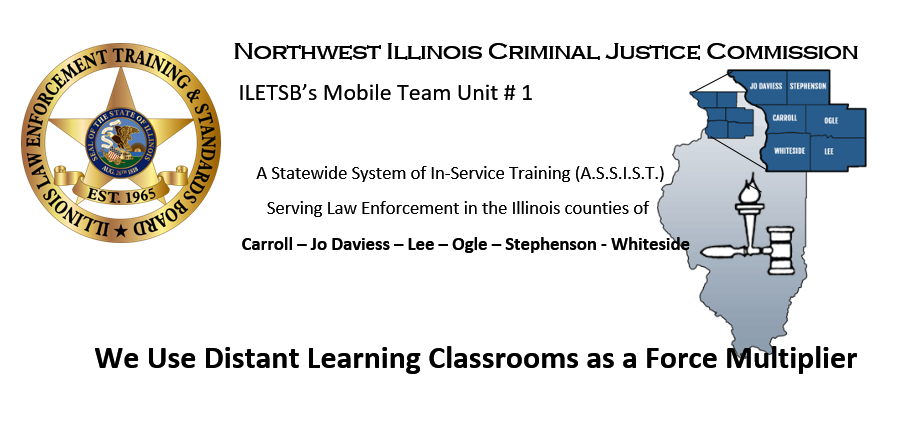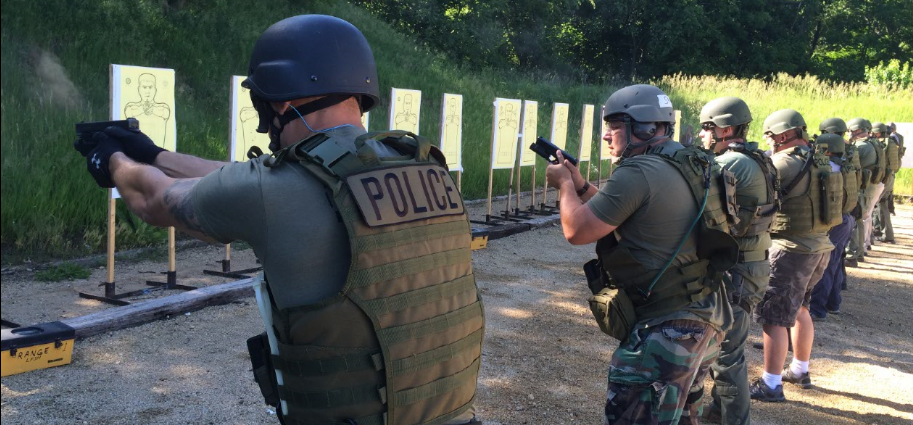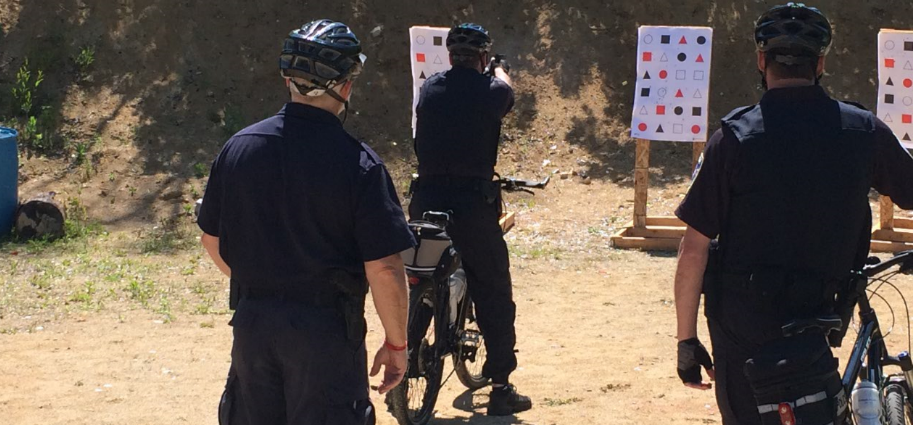40 hr. Crisis Intervention Team Training-Canceled
Registration Deadline: Monday, February 3, 2020
Time: 8:00 AM - 5:00 PM
Illinois Valley Crime Prevention Commission Training Room
Princeton, IL
Members' Fee: $0
Sworn Non-Members' Fee: $0
Non-Members' Fee: $0
DOWNLOAD FILE
This class has been canceled
Class Dates: March 2-6, 2020
PREREQUISITES: OFFICERS MUST HAVE AT LEAST TWO YEARS EXPERIENCE TO TAKE THIS TRAINING
What Is CIT?
A Crisis Intervention Team (CIT) program consists of a team of law enforcement officers which has received intensive specialized training on dealing with individuals in the community who have a mental illness or other behavioral disability. CIT officers provide an immediate response to calls involving a mental health crisis situation.
The goal is for each participating law enforcement agency to have at least one CIT officer available on each shift, but these officers also perform their regular duty assignments. This is not envisioned as a call-out situation since immediacy of response is what makes the program successful along with application of viable interaction techniques.
The “team” concept involves law enforcement involvement with stakeholder agencies as well as interagency mutual assistance agreements whereby participating CIT departments agree to provide CIT coverage for one another as circumstances may dictate and where a CIT department may not have an available CIT officer on a shift at the time that a situation requiring such expertise is received.
Community members can easily identify CIT officers by a standardized “CIT” pin worn on officers’ uniforms. These officers are also expected to find opportunities to interact with these individuals when they are not in a crisis situation. For example, CIT officers may attend community meetings at service agencies or may do “well-being” checks with individuals with whom they have become familiar. It is expected that the CIT team will build relationships and cultivate partnerships with area service providers beginning during their CIT training and continuing over time.
Officer Selection
Selecting the appropriate officers for the team is crucial to the effectiveness of the CIT program. All department officers should be given an opportunity to volunteer for the program after which command staff should choose those officers they feel will best fulfill the responsibilities expected of a CIT officer. CIT Training
CIT training consists of a one-week, 40-hour block of state-certified instruction. Topics include but are not limited to mental illness recognition, substance abuse and dual diagnosis, child and adolescent disorders, psychotropic medications, geriatric issues, medical conditions that mimic mental illness, autism and developmental disabilities, compliant surrender, excited delirium syndrome, risk assessment and crisis intervention skills, and working with returning combat veterans. Locally-identified issues of concern may also be addressed. A curriculum of content which must be taught is approved by the Illinois Law Enforcement Training and Standards Board.
In addition to training presentations consisting primarily of interactive lecture, officers participate in a variety of valuable exercises. In one such exercise officers listen to an iPod playing “voices” that simulate the auditory hallucinations that many individuals with a mental illness may experience. While listening to these voices, officers rotate through a series of workstations where they are required to perform cognitive tasks which allows officers to gain insight into what an individual who is hearing voices might be experiencing. In addition, and whenever possible, Janssen Pharmaceutica provides “Virtual Hallucinations” via a laptop-based application whereby officers experience visual, auditory, and olfactory hallucinations simultaneously for about a fifteen minute period with the opportunity for debriefing/discussion afterwards with the Janssen professional who has expertise in mental illness-related issues.
During the week, each officer will have a unique opportunity to participate in discussions with individuals who have a mental illness and/or their family members. Those individuals typically share their personal experiences including any they may have had previously with law enforcement and are able to explain to officers what their needs were/are in a crisis situation, what works and doesn’t seem to work, and officers are also able to ask questions of those individuals.
An essential part of the CIT training is scenario-based role-play training. Officers are given realistic scenarios portrayed by professional actors which may include suicide interventions, de-escalating a potentially violent situation, responding to a call involving an individual experiencing paranoia, or a person interacting with a peer in a manic episode behaving in an inappropriate manner. Scenarios are tailored to the kinds of duties officers in the class regularly perform. All scenarios are facilitated by and evaluated by state-certified CIT officers, and successful passage of this portion of the training is required to complete the course, and receive subsequent CIT certification.
CIT Benefits
- Crisis response is immediate.
- People in crisis needing services are better addressed by officers and provided with care.
- Officers are better trained and educated in verbal de-escalation techniques.
- CIT officer recognition and appreciation by the community increases.
- Less “victimless” crime arrests.
- Repeat calls for many people with disabilities decrease.
- Involuntary hospitalizations decrease while voluntary hospitalizations increase
- Likelihood of injury decreases for all involved.
- Cost savings are typically realized over time.
In the last twenty-plus years, researchers around the country have studied law enforcement agencies with CIT programs. Several statistically significant findings have been noted. Researchers at The University of Tennessee, in studying the Memphis Police Department where CIT originated, have observed:
- Officer injuries decreased.
- Arrest rates decreased for the mentally ill.
- Use of force decreased.
- Violence and use of restraints decreased in hospital emergency departments.
- Rate of mental illness in county jails and municipal lockups decreased.
- Liability for health care issues consequently decreased in jails/lockups in CIT departments.









